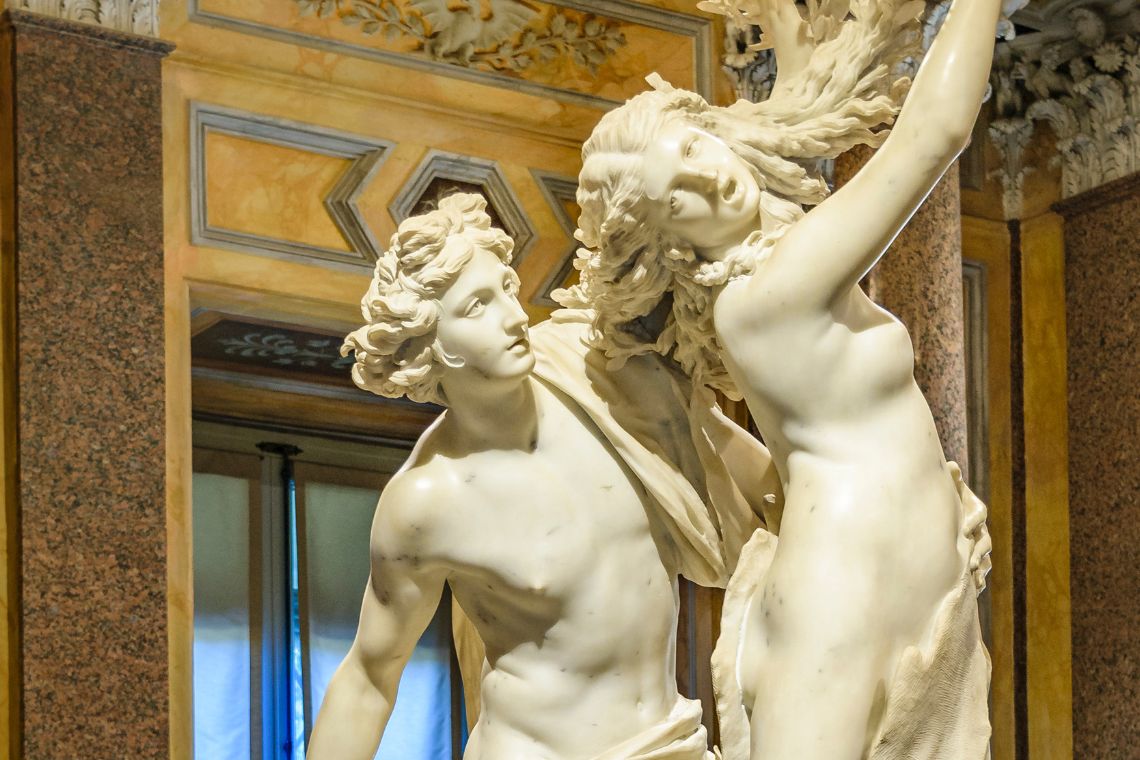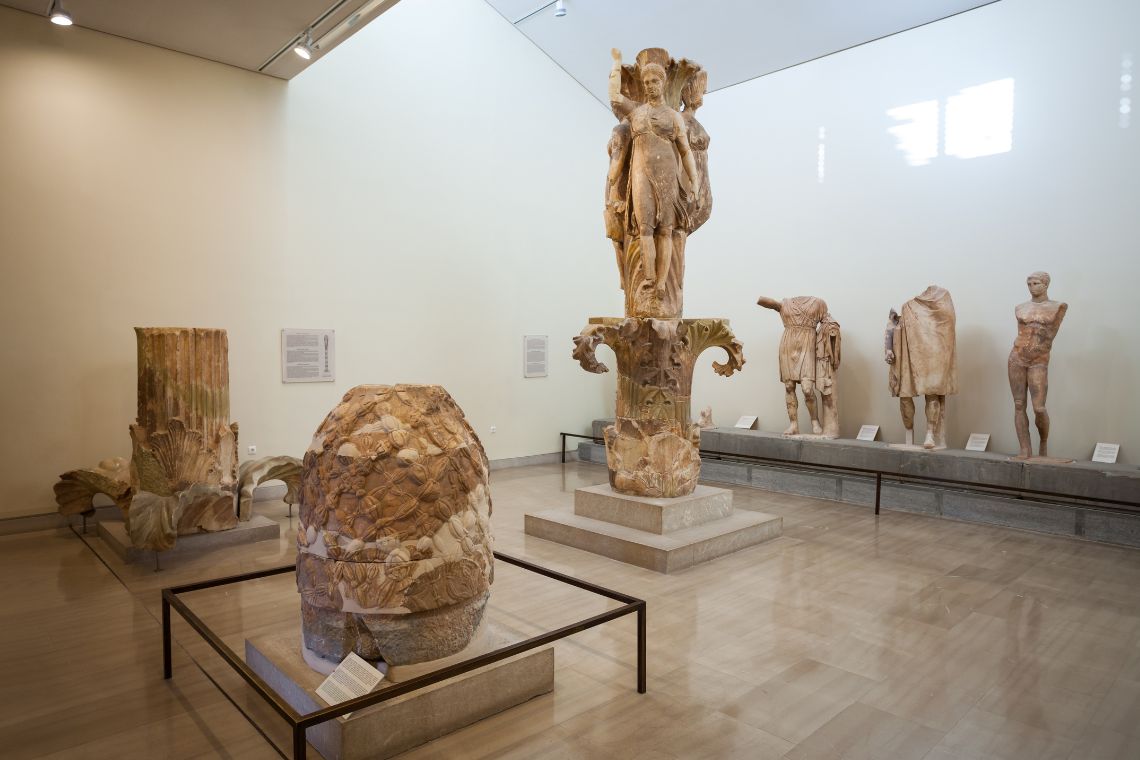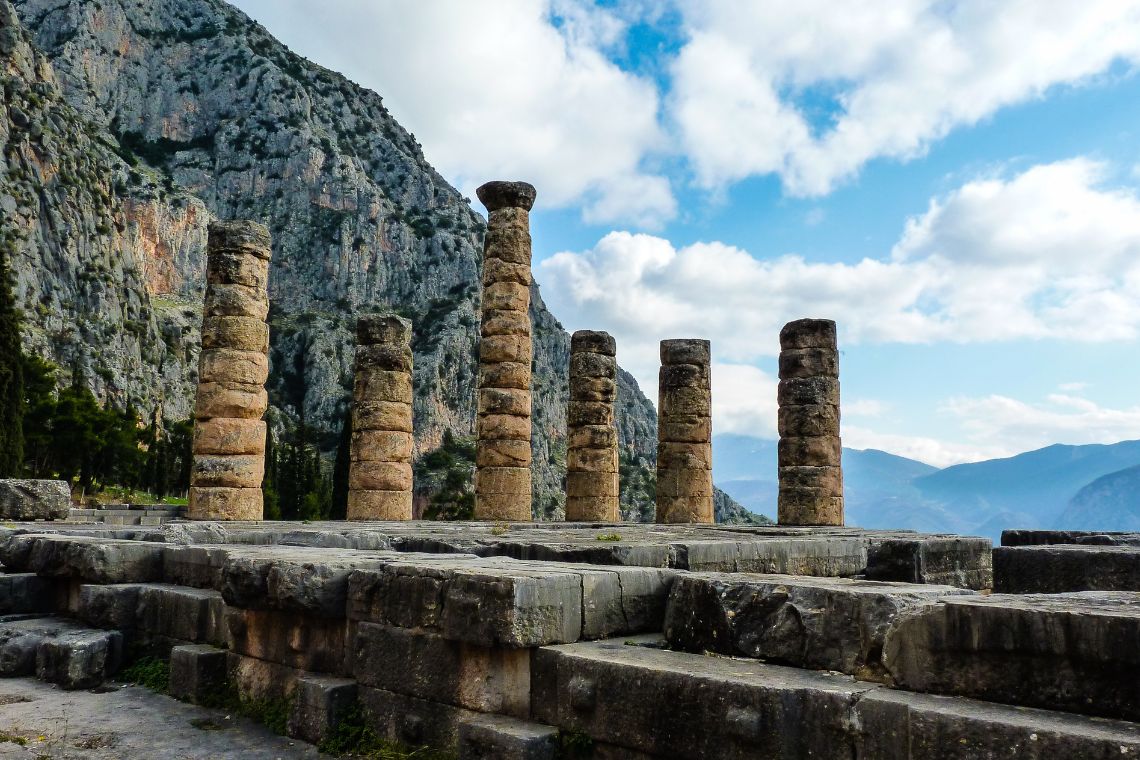7-Day Percy Jackson Mythology Trip
As a god of the arts, he was credited with inspiring the creation of poems, songs, and stories that have become staples of Greek literature, such as Homer's epic poems, Iliad and Odyssey. Apollo's connection to healing extended not only to the individual but also to the protection of communities.
In conclusion, we can safely say that Apollo was a complex and multifaceted god, fulfilling various roles in Greek mythology. From his birth to his significant position among the Olympians, he remains an enduring symbol of light, knowledge, and the arts.
Apollo: The God of Many Domains
Apollo is a prominent Greek deity who holds a multitude of domains in mythology. He is often associated with the sun, music, poetry, prophecy, and healing. Known for his handsome youthful appearance, Apollo exemplifies the ideal image of strength and grace.
Exploration of Apollo's Roles
One of Apollo's major roles is the god of the sun, standing as an important figure embodying light. His connection to sun and light further links him to the fundamental aspects of life and the universe. He drives the sun across the sky daily, influencing the dynamic cycles of day and night.
Furthermore, Apollo serves as a prominent deity for music, wielding his iconic lyre as a symbol of artistic mastery. His musical inclinations showcase the power of creative expression and the divine beauty of sound.
In addition to his other functions, Apollo is known for his role in prophecy. This is exemplified by his connection to the Oracle of Delphi, which served as a sacred site for divine communication. By channeling the wisdom of the gods through the Pythia, Apollo played a crucial part in guiding the course of ancient Greek society.
Symbols and Attributes of Apollo

Apollo and Daphne Bermini Masterpiece, Rome - Credits: DanFLCreativo / Canva
The gods and goddesses of Olympus each had their own special symbols that represented their attributes and powers. Apollo, the Greek god of music, healing, prophecy, and sun, has various symbols associated with him. Notable among these symbols are the lyre, laurel wreath, and bow and arrow.
The lyre is a symbol of Apollo's connection with music and arts. He was often depicted carrying a lyre, and his proficiency in music was highly admired. The musical instrument was given to Apollo by Hermes, and since then, it has been an essential attribute representing Apollo's artistic prowess.
Apollo is also known for his associations with laurel wreaths, which have a fascinating backstory. According to myth, the nymph Daphne transformed into a laurel tree to escape from Apollo's advances. Consequently, the god declared the tree sacred, and the laurel wreath became one of Apollo's primary symbols. The wreath symbolizes victory and accomplishment.
Lastly, Apollo had a role as the god of healing. One of Apollo's sons, Asclepius, was also associated with healing, and together, they guarded the well-being of gods and humans alike.
Among the many symbols connected to Apollo, some of the most significant are his sacred animals: the dolphin, the crow and the swan are only a few of the animals associated with Apollo’s mythology.
Apollo's Role in the Pantheon

Delphi Archaeological Museum - Credits: Andrey Khrobostov / Canva
Apollo was one of the most important Greek gods, playing various essential roles in the pantheon. He was the god of prophecy, light, and music. Apollo's connection to prophecy was evident in his association with the famous Oracle at Delphi. As mentioned above, he was also esteemed as the god of healing and arts.
Apollo's Offspring and Their Impact
Apollo fathered many children, some of them with significant roles in mythology and ancient society. Asclepius, one of Apollo's sons, became the god of medicine and healing. He was revered so much that temples were built for him, where people would seek healing treatments.
Worship and Cult of Apollo in Ancient Greece

Apollo Temple Oracle in Delphi - Credits: ankarb / Canva
Ancient Greeks held Apollo in high esteem and celebrated various festivals in his honor, such as the Pythian Games and the Delian Festival. Many temples were built as places of worship and dedication to the god. The Oracle of Delphi was an essential place where people came to seek guidance from Apollo's prophecies.
From Athens: Percy Jackson Delphi Day Trip
Apollo's Enduring Legacy: Visiting Greece Today
Apollo's legacy extends to modern-day Greece, where many ancient sites related to the worship of Apollo still stand. Places like Delphi and Delos continue to attract visitors who wish to learn about ancient Greek culture, arts, and traditions. The famous Belvedere Apollo statue remains as a symbol of Apollo's enduring influence on the arts and the importance of his role in Greek mythology.
FAQs
What powers does Apollo possess?
Apollo, the Greek god of various domains, possesses powers related to music, archery, prophecy, and healing. As an oracular god, he was also known for granting prophecies and knowledge of the future through the Delphic Oracle.
Who are Apollo's divine parents?
Apollo is the son of the supreme god Zeus and Leto, a Titaness. His divine lineage highlights his importance in Greek and Roman mythology, as he is one of the major Olympian deities.
What are the defining characteristics of Apollo?
Apollo embodies harmony, reason, and moderation, epitomizing the Hellenic ideal of kalokagathia. In terms of physical appearance, Apollo is often portrayed as a young, attractive man with golden hair, representing beauty and physical superiority.
What is Apollo's role in Greek and Roman mythology?
Apollo holds a multifaceted role in Greco-Roman mythology. He was the god of divine distance, religious law, and represented the communication with mortals of the will of his father, Zeus.
How is Apollo related to other gods and goddesses, like Artemis?
Artemis is Apollo's twin sister and also the daughter of Zeus and Leto. While Apollo is associated with the sun, music, and prophecies, Artemis is the goddess of the moon, hunting, and chastity.


